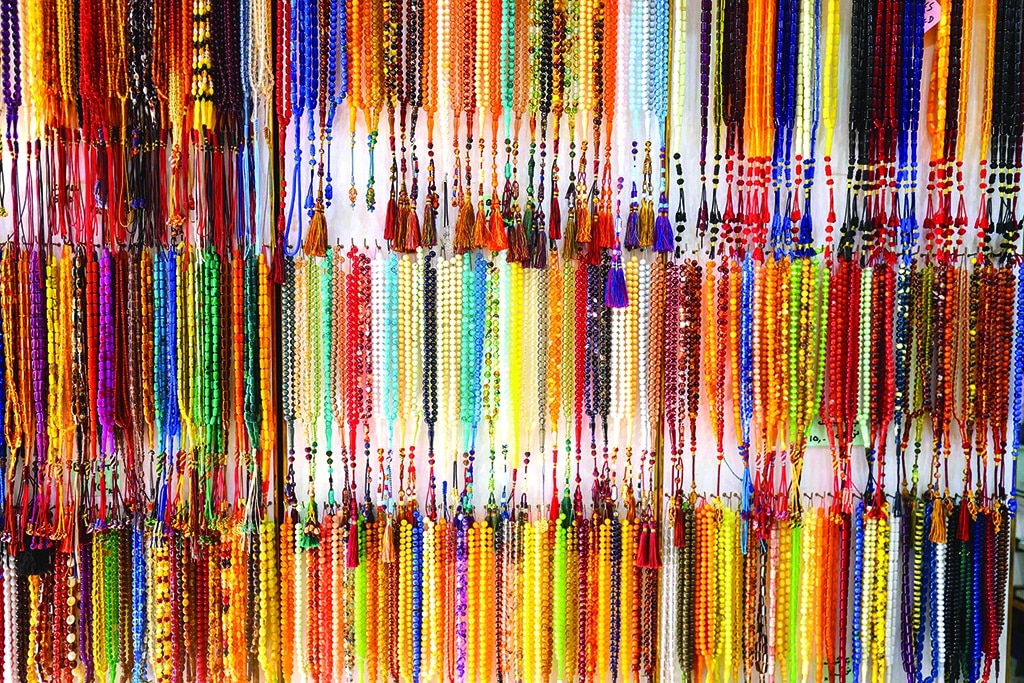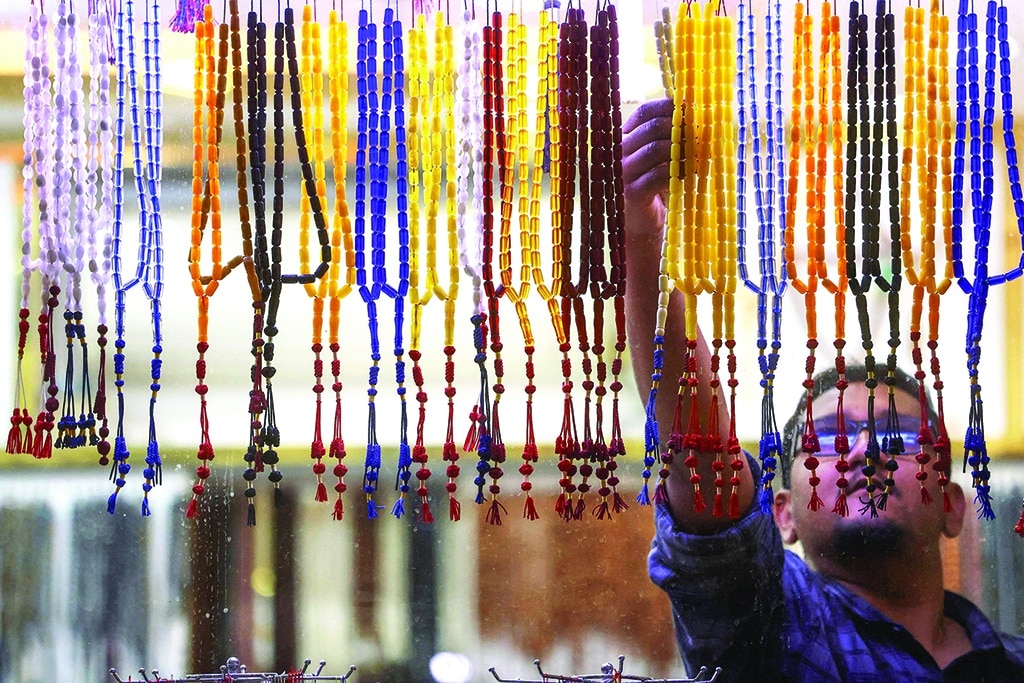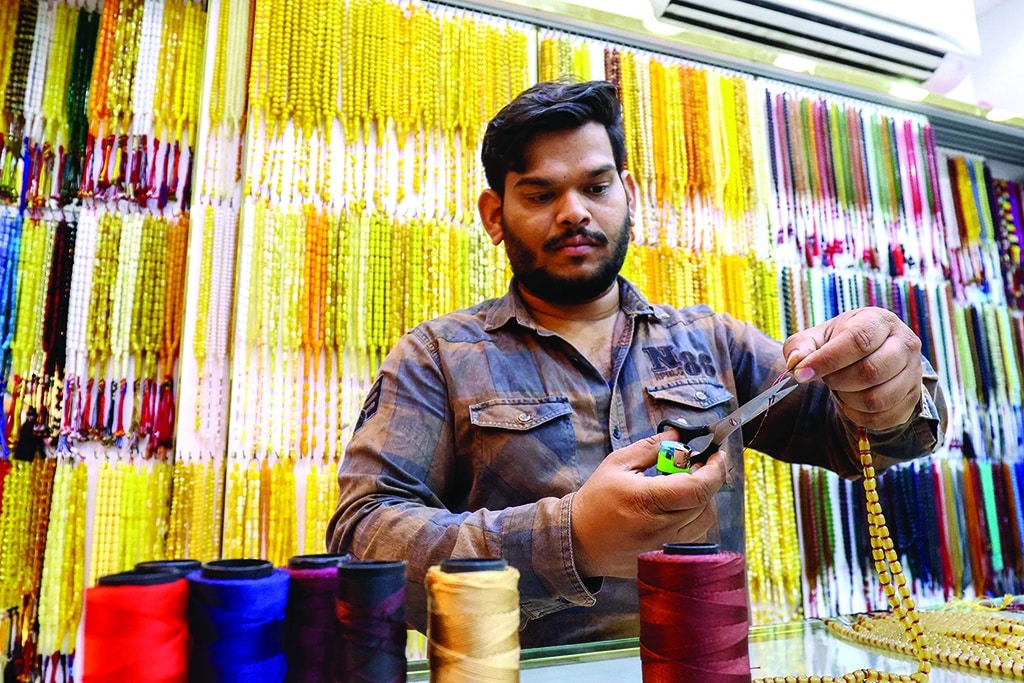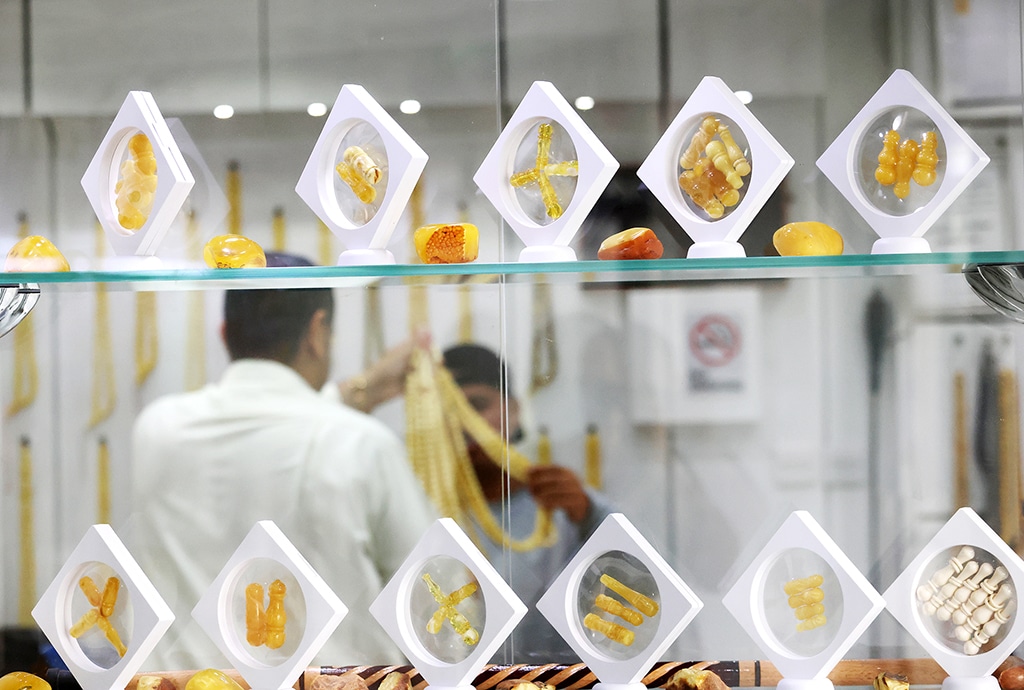By Ghadeer Ghloum
KUWAIT: The rosary, known as misbah in the Kuwaiti dialect, is a unique accessory that is often carried by Kuwaiti men to add an elegant and luxurious look to their traditional dishdasha. Its value and distinction constitute a public culture among Kuwaiti men. Rosaries in Kuwait come in different types, shapes and prices depending on the quality of the material and manufacturing. To take a closer look at Kuwaiti men's fashion, Kuwait Times interviewed three Kuwaiti men, who shared their thoughts on what makes the misbah extra special.
How do Kuwaiti men accessorize their traditional outfit (dishdasha and ghutra with egal)?
Abu Abdullah, a local middle-aged man, told Kuwait Times that the misbah in Kuwaiti culture is considered as an accessory to the outfit worn, and part of putting on a fashionable look. In addition to wearing the formal Kuwaiti dress of a dishdasha and ghutra with egal, men add accessories to show their status and sophisticated appearance, such as putting a fountain pen in the chest pocket, replacing sleeve buttons with cufflinks (bazmat), wearing a watch and carrying misbah made of beautiful and valuable beads. These accessories are usually worn on special meetings and events.
 A Kuwaiti man checks a collection of prayer beads displayed at a shop in downtown Kuwait City, during the holy fasting month of Ramadan.
A Kuwaiti man checks a collection of prayer beads displayed at a shop in downtown Kuwait City, during the holy fasting month of Ramadan.However, the misbah has a special value among other accessories over the precious material used and its purpose, which is rooted to not only fashion and tradition, but also religion and psychology, as some people believe it is capable of healing some illnesses. Therefore, the misbah is not just an accessory. Abu Abdullah said carrying a misbah has become an inherited social behavior, as today we see youngsters and teenagers carry it to manifest the prototypical appearance of a Kuwaiti man.
Carrying a misbah is also a habit for some men. "They are always playing with the rosary beads for calmness and entertainment, or while thinking, so they move the rosary around their thumb or fingers in a certain manner that interacts with their thinking and concentration. Also, some men see that carrying a rosary adds to their masculine identity, as men should carry a misbah," Abu Abdullah said.



Is misbah only for men?
Both men and women use the misbah for its uniqueness and sophistication. Khaled, a middle-aged local, told Kuwait Times: "We are used to seeing men with a misbah, and a woman with a misbah used to be very rare. Women used it for prayers, but not in public. However, this is not the case today, as women have started wearing it as a bracelet around their wrists."
Young men, teens carrying misbah
Abdulrahman, an 18-year-old Kuwaiti, said that he carries a misbah not only at formal events or while wearing the dishdasha. "My misbah is of kahrab (a precious stone used to make rosary beads). I carry it even when I go to shopping malls and when I am wearing casual clothes. Using a misbah is very relaxing and is good for my psychological wellness," he said. Like many others, Abdulrahman believes the purpose behind using a misbah is beyond accessorizing - it also improves health.











